A WALK THROUGH BOKO HARAM ZONES
It is getting to 9pm, and the person coming to pick us isn’t in sight. He tries calling again. “Let’s start walking down,” he says, patting me on the shoulder.
As we walk abreast each other, he continues to tell me of their many operations: how they flushed Boko Haram members out of some villages, and their patrol of Chad and Cameroon boarders.
We walk through Bayan Tasha. Everywhere is as silent as a mortuary. The streetlights are on and I see New Dubai Market, I see the Izala Mosque and then we turn into a dark narrow path. As we walk through this path, I notice people seated in groups, muttering. My heart beats faster here, as I begin to cast skeptical looks at Exgee, asking myself if, really, he’s a soldier or one of the terrorists. I dash my foot against something I couldn’t see, and instantly, Exgee grabs me from falling. We come out at Gashua Road, and the streetlights lighten our path again. A military Hilux truck speeds past, and a soldier on top of it, seeing Exgee, shouts his nickname. “They call me that name because I operate the General Purpose Machine Gun,” Exgee tells me, smiling, and with a sense of pride. My fears get subdued, for indeed, I am in safe hands.
Advertisement
We walk on, and come out at Gwange Ward. “This place was another base for the terrorists,” Exgee tells me, as he shakes his head. “Even us wey be soldiers go first run to go re-mobilize.”
For a few men in Kaftan that walk past, everywhere is silent that the drop of a pin is audible. We approach a Roundabout, and two boys, armed with sticks, hail Exgee. “They are my boys,” Exgee tells me. “They are members of the Civilian Joint Task Force,” he says. The two boys join us in the walk.
“Maybe this guy can’t come again,” Exgee says, as he stops, turning at me. “If not for you, I would have found my way,” he says, resting his heavy hand on my shoulder. “Come, let’s go use one Guest House.”
Advertisement
We walk through a series of dark narrow paths and eventually arrive at the Guest House. I can neither see the name of the street nor that of the guesthouse. No light anywhere in the Guest House. Through the dark corridors, we are led to a room. I ask Exgee to allow me pay, he says no way, and insists he is paying. “It’s nothing,” he says. He asks one of the Civilian JTF boys to go get food for us. I want to give the boy money, and again, he puts a restraining hand on my hand. “It’s nothing Femi, haba,” he says. “You remind me of a former colleague. His name is Femi. He has left the service, he couldn’t cope anymore when Boko Haram almost killed him,” he says and we both laugh. He must have seen through my fears as we walked through those dark paths.
As I tear the loaf, Exgee puffs his cigarette. He promises to take me back to the terminus early the next day to continue my journey. I can’t take my bath, because we have just one bucket of water and Exgee suggests we reserve it for the morning.
As we relax into the bed, I bring out my Blackberry phone to run through some emails and Facebook updates. There is no network signal on the phone, and I remember Exgee telling me that the terrorists had destroyed all the telecom masts in the town. Only Airtel and MTN had returned to fix their masts; GLO, my own network provider, hadn’t. Fiddling with my phone, as Exgee snores on, I take a shot of the footwear of a freelance journalist and that of a gallant soldier.
Advertisement
OUT OF DAMATURU
It is morning; I wake in Damaturu, Yobe State. I couldn’t sleep until 3am, held by worries. Exgee had told me many things that got me worried.
When we had to stop at the Yobe Line Terminus because it was late and unsafe to go on to Maiduguri, our driver told me to return the next morning as early as 5:30am. “Road opens by 6am,” he said. I had left the two Ghana-Must-Go bags – containing the relief materials – inside the bus, and followed Exgee.
5:47am, we are dressed up. “Thanks so much,” I say, opening my arms to hug Exgee “Oh, c’mon Femi, we are brothers,” he says, slapping me gently on the back.
We walk out of the Guest House, to the street, hoping for a tricycle. And soon, we see one coming from afar.
Advertisement
We hop in, and head straight to the Terminus. We ride past the Damaturu Police A-Division. “Look at that,” Exgee points me at the gate and fence of the Police Station; the hundreds of holes that bullets had left on the fence and gate. “Christ!” I scream.
“Hahaha,” Exgee laughs. “Boko Haram wants to take over all of Damaturu. Even the governor’s office.” The Police A-Division is just by the governor’s office.
Advertisement
We arrive at the Yobe Line Terminus. “The driver just left for Maiduguri,” we are told. “With my loads?!” I scream. “Relax,” Exgee says. He starts to speak with the men in Hausa. Many times, pointing at me, I hear him refer to me as Aboki.
“You will have to join another bus,” he tells me. And when you get to the Bornu Express Park in Maiduguri, ask for Yobe Line’s Chairman. They will get the load for you. He holds my hand and walks me to a bus loading Maiduguri passengers.
Advertisement
I peep into the bus. Women, all of them veiled. What if one of these veiled women has some bomb underneath, as recent news reports revealed? The crazy thought comes. I shrug it off. There are only two more vacant seats. N400, the man standing by the steering says. “You have cash on you?” Exgee asks, reaching for his pocket. I restrain him. This poorly-paid soldier cares so much about me. I hug him. And, I hug him again.
Soon, a boy hops in, and he sits beside me. To Maiduguri, we zoom.
Advertisement
My heart is beating faster. We are on that dangerous Damaturu-Maiduguri Road. The boy and I are sitting by the door. We will be the first to be hit by bullets should BokoHaram attack us, I imagine.
MAIDUGURI AT LAST
We bid Yobe farewell at a village called Wasala. When we approach a checkpoint, somewhere by a water-melon market, the soldier tells all of us to alight. While we are doing that, one of the veiled women holds a stainless-steel flask, looking almost like a bomb-loaded canister. “Hold it!” The soldier booms, cocking his gun.
“Cooler sa abinchi, cooler sa abinchi,” the woman cries out. And the soldier lowers the muzzle of his riffle.
“And you,” pointing at me, “what’s inside the bag on your back?” He asks, frowning.
“A few clothes and a book, sir,” I say, flashing him a smile.
We are, then, ask to walk down, to the other side to meet the driver who will slowly drive through the barricades. The walk is about 1km. As we walk, I look left and right; bushes everywhere. What if these terrorists appear from this bush, out-power the soldiers? Oh, I will escape through… oh, I will climb that tree and hide in the leaves… oh, I will hide behind this military tank… The thoughts flow.
We continue with the journey, stopping at every checkpoint. The boy by my side and I are already talking. He does not grab most of the things I say in English. “Is Maiduguri still far?” I ask him. He looks at me and smiles.
“Son, is Maiduguri still far?!” I ask again. He looks at me,and waves, this time. I do not get it. I attempt to pick some Hausa words and get him to my question. He starts to speak in Hausa, the one I don’t understand. I nod, as though I get it. He talks on. I nod on. The only thing I could pick is ‘Maiduguri’.
At a point, we start to understand each other; I break my English words into the very simplest form and I gesture along. He tells me his name, Isa Bunu Maryam. He should be 14 or 15. He has been out of school since Boko Haram began continually attacking Gwoza village, where he lived and schooled.
“I lost my father in one of the attacks,” he says. My heart bounces against my ribs. He says he came to see his brother in Damaturu, and he’s returning to Maiduguri. He asks what my name is. I smile. “Sanni,” I say. “Sanni Lagos,” I add.
“Sanni Lagos?” “Yes,” I nod. “Allahuakbar,” he says, feeling excited. “Things will be fine, I tell him, patting his shoulder.”
I used to know Gwoza, when mobile policemen in Ilorin, where I grew, return from a training there, and they proudly bounce around town wearing a t-shirt with the imprint: I am a gallant mopol! I’ve been to Gwoza Hills!
“Let us be saying Asibunalahhu walein…” Isa tells me, suddenly, placing his left palm on the back of mine. “Benisheik, Benisheik,” he says, gesturing, that we are approaching Benisheik. My heart almost drops into my stomach.
“Boko Haram terrorists are always here,” he says, his voice, fainting. The night, Exgee has told me about Benisheik, about the exchange of bullets they regularly have with the terrorists here. I join Isa, and we silently chant Asibunalahhu…, albeit, I chant mine in the biblical way: Our Father Who Hath In Heaven…
We are stopped, again, at a checkpoint in Jumtulu, a few kilometers to Benisheik. Like we’ve done, we come out of the bus, walk over to other side of the military barricades to meet the bus. This time, however, as we walk past, we are ordered to pull up our shirts/kaftans up to the chest. The veiled women, their hijab. Holding my t-shirt up to my chest, as I walk past the many muzzles aiming my head, a soldier moves near me. “Stop,” he says. “Identify yourself.” I remember Jash telling me that upon entering into Maiduguri, the soldiers would ask for my ID. I want to reach for my pocket, and the soldier screams, “don’t!” I shiver, raising my hands. “My passport, sir, inside my pocket,” I say with shivering lips. He looks at me. He looks at me again. “Move,” he says. “Thank you, sir. Welcome, sir. I mean, well done, sir,” I stammer.
We arrive in Maiduguri. The military officer who offered to pick me has been waiting at the Bornu Express. I hug Isa, and I bring out N500 note from my chest pocket. “No, Alhaji Sanni,” he says, smiling and shaking his head. “Use it for lunch, son,” I say, squeezing it in his hand. He thanks me. The officer and I fetch my relief materials and we leave the park.
As he drives me into a seeming relaxed ambience of Maiduguri, I bring out my phone, and logging into the Internet, the breaking news is of a bomb that just went off in Damaturu. “A suicide bomb has been detonated in north east Nigeria, killing five people and injuring at least 41 others. The blast took place at a major bus station in Damaturu, the capital of Yobe State today (25 August),” a news blog, Yahoo News, reports.
Quickly, I put a call through to Exgee who is in Damaturu. “You are lucky,” he says, in a depressed tone. “The bomb went off just few minutes that you took off, at the exact park where you took off. You would have been totally stranded in Damaturu, that is even if you weren’t bombed.”
Owolabi, a freelance journalist, writes from Lagos
2 comments

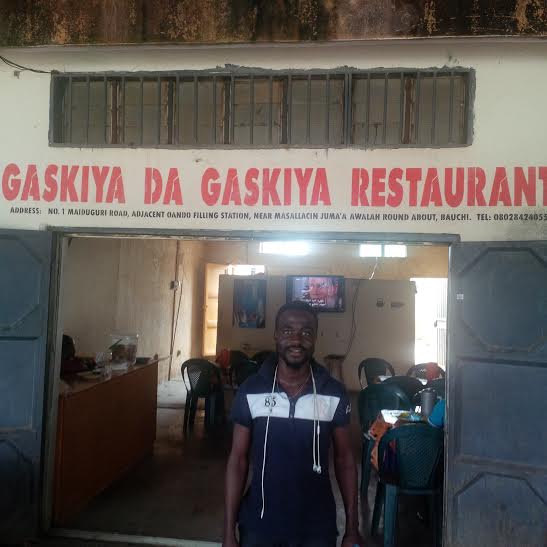
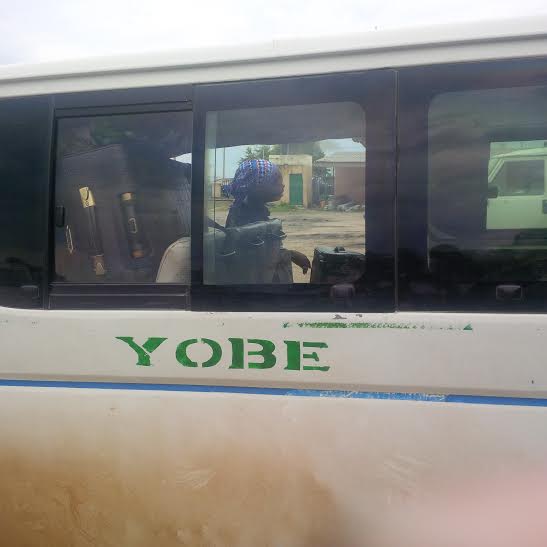
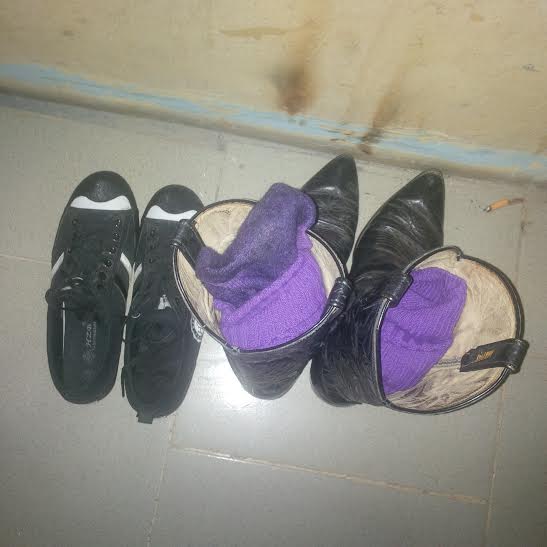

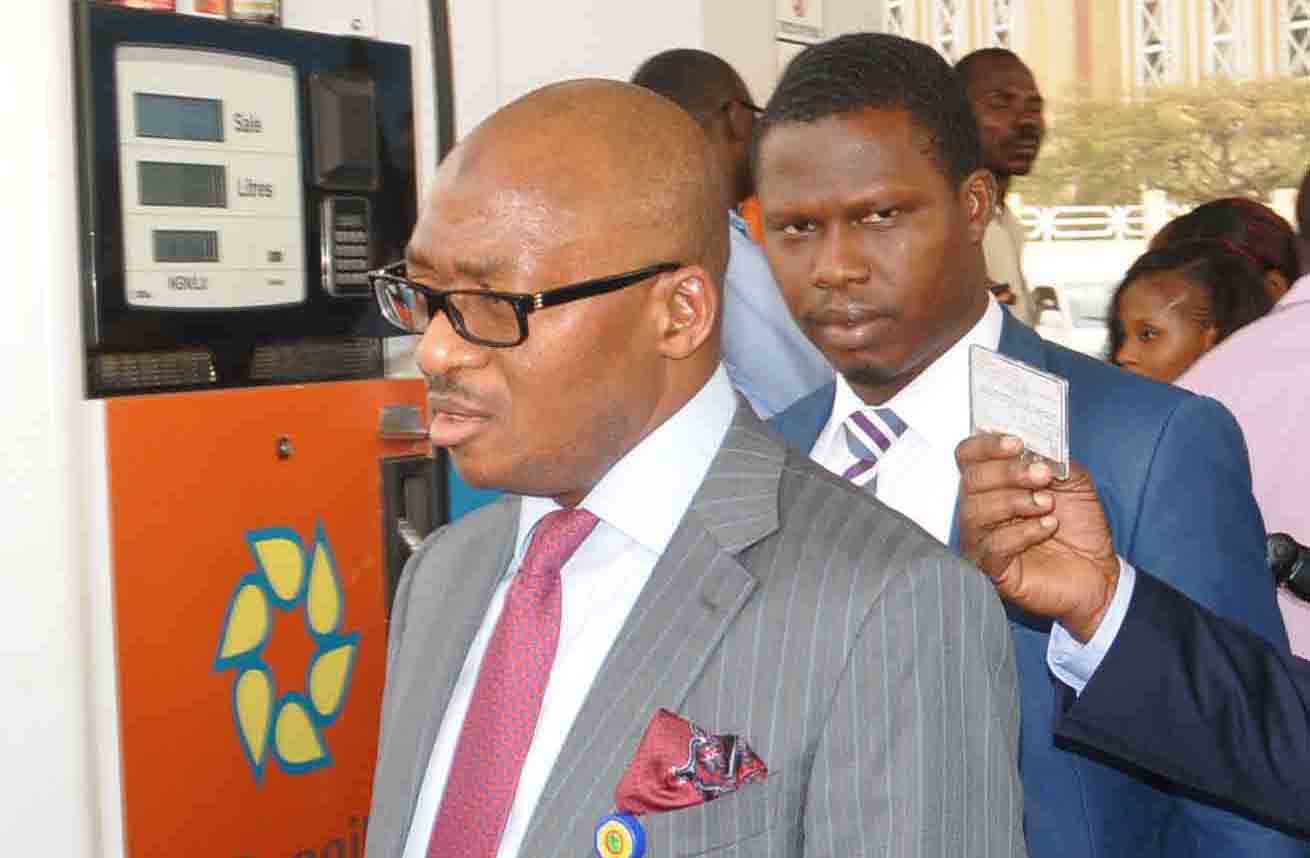


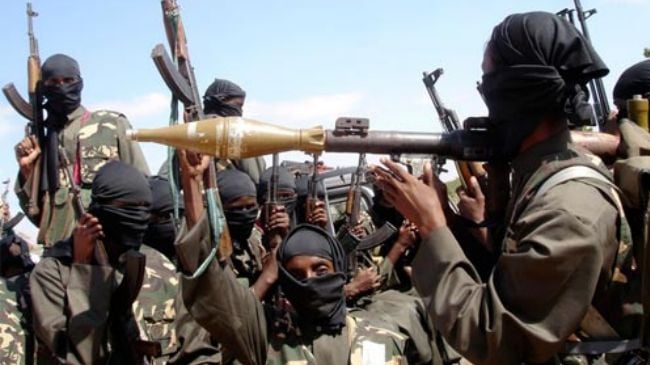
I’m impressed by the humanity in everyone of the people you got closer to along on the journey: Jash, Exgee, & Isa. We the people indeed are one big family. We just need to work on a few outliers amongst us. May God help us build a better Nigeria.
Your comment..what a nice travelogue!